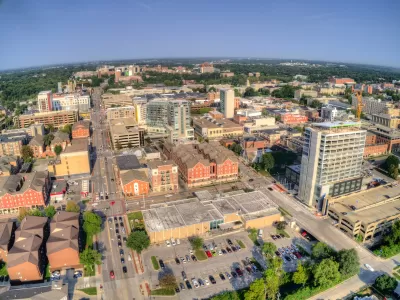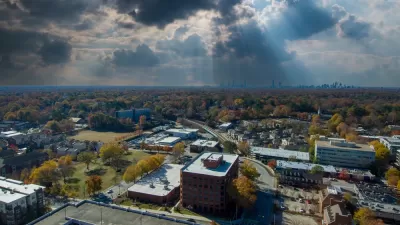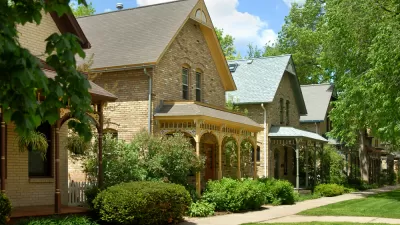Iowa City is planning ahead to ensure that housing supply keeps up with housing demand.

The Iowa City planners are working on a set of proposed zoning changes to increase housing supply and diversity, presenting five potential zoning code amendments to a recent working session by the City Council.
Izabela Zaluska reports for the Gazette that the five amendments would accomplish the following changes:
- Increasing flexibility for a range of housing types, including where duplexes, townhomes and assisted group living are allowed
- Modifying design standards
- Providing additional flexibility to enhance the supply of housing, including increasing the bedroom limit for multifamily housing outside of the University of Iowa impact area
- Creating regulatory incentives for affordable housing, including density bonuses
- Addressing fair housing, including creating a process to request reasonable accommodations for people with disabilities
Those five amendments include a total of 13 changes intended to improve housing affordability in the city. “One of the changes would allow duplexes and two attached units more widely in lower density single-family zones, instead of only on corner lots. Staff estimates this would allow up to 2,900 lots to accommodate duplex uses through gradual conversion,” writes Zaluska.
Zaluska also reports that the proposed amendments are based on the vision laid out in the city’s 2016 affordable housing action plan: “The plan included 15 action steps, including changes to zoning regulations. The changes to zoning regulations is the only action step that has not been completed, senior planner Anne Russett said.”
More details on the reasoning behind the proposed amendments are included in the source article below.
FULL STORY: Iowa City considering zoning code changes to encourage affordable housing

Americans May Be Stuck — But Why?
Americans are moving a lot less than they once did, and that is a problem. While Yoni Applebaum, in his highly-publicized article Stuck, gets the reasons badly wrong, it's still important to ask: why are we moving so much less than before?

Using Old Oil and Gas Wells for Green Energy Storage
Penn State researchers have found that repurposing abandoned oil and gas wells for geothermal-assisted compressed-air energy storage can boost efficiency, reduce environmental risks, and support clean energy and job transitions.

Placekeeping: Setting a New Precedent for City Planners
How a preservation-based approach to redevelopment and urban design can prevent displacement and honor legacy communities.

San Francisco’s Muni Ridership Grew in 2024
The system saw its highest ridership since before the Covid-19 pandemic, but faces a severe budget shortage in the coming year.

Colorado Lawmakers Move to Protect BRT Funding
In the face of potential federal funding cuts, CDOT leaders reasserted their commitment to planned bus rapid transit projects.

Safe Streets Funding in Jeopardy
The Trump administration is specifically targeting bike infrastructure and other road safety projects in its funding cuts.
Urban Design for Planners 1: Software Tools
This six-course series explores essential urban design concepts using open source software and equips planners with the tools they need to participate fully in the urban design process.
Planning for Universal Design
Learn the tools for implementing Universal Design in planning regulations.
Heyer Gruel & Associates PA
City of Moreno Valley
Institute for Housing and Urban Development Studies (IHS)
City of Grandview
Harvard GSD Executive Education
Salt Lake City
NYU Wagner Graduate School of Public Service
City of Cambridge, Maryland





























